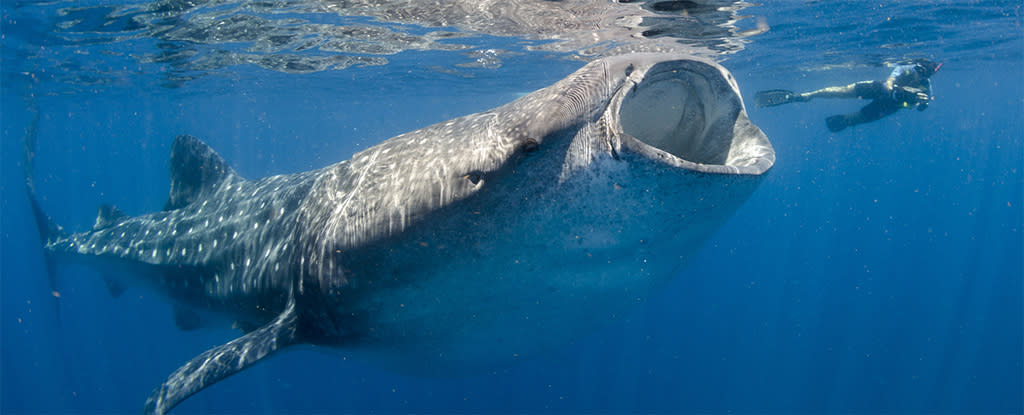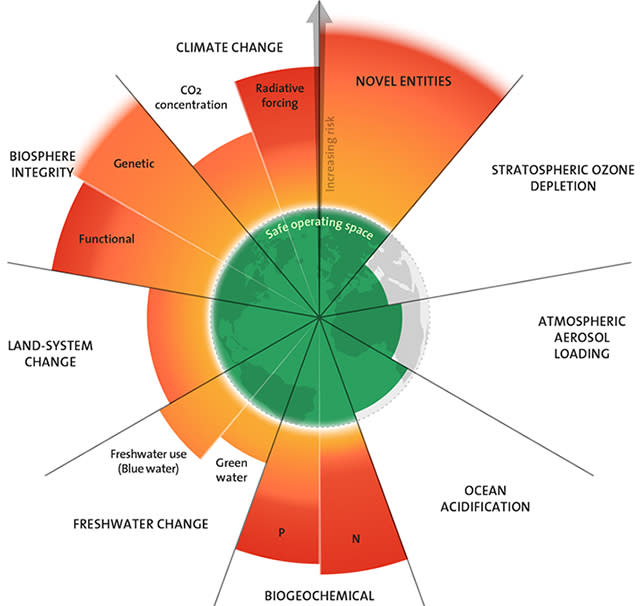Earth's Water Is Rapidly Losing Oxygen, And The Danger Is Huge

Supplies of dissolved oxygen in bodies of water across the globe are dwindling rapidly, and scientists say it's one of the greatest risks to Earth's life support system.
Just as atmospheric oxygen is vital for animals like ourselves, dissolved oxygen (DO) in water is essential for healthy aquatic ecosystems, whether freshwater or marine. With billions of people relying on marine and freshwater habitats for food and income, it's concerning these ecosystems' oxygen has been substantially and rapidly declining.
A team of scientists is proposing that aquatic deoxygenation be added to the list of 'planetary boundaries', which in its latest form describes nine domains that impose thresholds "within which humanity can continue to develop and thrive for generations to come."
So far, the planetary boundaries are climate change, ocean acidification, stratospheric ozone depletion, interference with the global phosphorus and nitrogen cycles, rate of biodiversity loss, global freshwater use, land-system change, aerosol loading, and chemical pollution.

A team led by freshwater ecologist Kevin Rose from Rensselaer Polytechnic Institute in the US is concerned that this list overlooks one of the Earth's most important limits.
"The observed deoxygenation of the Earth's freshwater and marine ecosystems represents an additional planetary boundary process," the authors write, "that is critical to the integrity of Earth's ecological and social systems, and both regulates and responds to ongoing changes in other planetary boundary processes.
"Relevant, critical oxygen thresholds are being approached at rates comparable to other planetary boundary processes."
The concentration of dissolved oxygen in water drops for a number of reasons. Warmer waters can't hold as much dissolved oxygen, for instance, and with greenhouse gas emissions continuing to raise air and water temperatures above their long-term averages, surface waters are becoming less able to hold on to this vital element.
Dissolved oxygen can also be depleted by aquatic life faster than it is replenished by the ecosystem's producers. Algal blooms and bacterial booms triggered by an influx of organic matter and nutrients in the form of agricultural and domestic fertilizers, sewage, and industrial waste, quickly soak up available dissolved oxygen.
In the worst cases, the oxygen becomes so depleted that the microbes suffocate and die, often taking larger species with them. Populations of microbe that don't rely on oxygen then feed on the bounty of dead organic material, growing to a density that reduces light and limits photosynthesis to trap the entire water body in a vicious, suffocating cycle called eutrophication.
Aquatic deoxygenation is also driven by an increase in the density difference between layers in the water column. This increase can be attributed to surface waters warming faster than deeper waters and melting ice decreasing surface salinity in the oceans.
The more distinctly defined those layers are, the less movement there is between those layers of the water column, which the vertical strata of underwater life relies upon. These density fluctuations power the movement of oxygenated surface water into the deep, and without this temperature-powered freight, ventilation in the lower depths of aquatic environments grinds to a halt.
All this has wrought havoc on aquatic ecosystems, many of which our own species rely on for our own food, water, incomes, and wellbeing.
The paper's authors call for a concerted, global effort to monitor and research deoxygenation of the 'blue' parts of our planet, along with policy efforts to prevent rapid deoxygenation and the associated challenges we are already beginning to face.
"Reducing greenhouse gas emissions, nutrient runoff and organic carbon inputs (for example, raw sewage loading) would slow or potentially reverse deoxygenation," they write.
"The expansion of the planetary boundaries framework to include deoxygenation as a boundary [will help] to focus those efforts."
This paper was published as a Perspective in Nature Ecology & Evolution.

